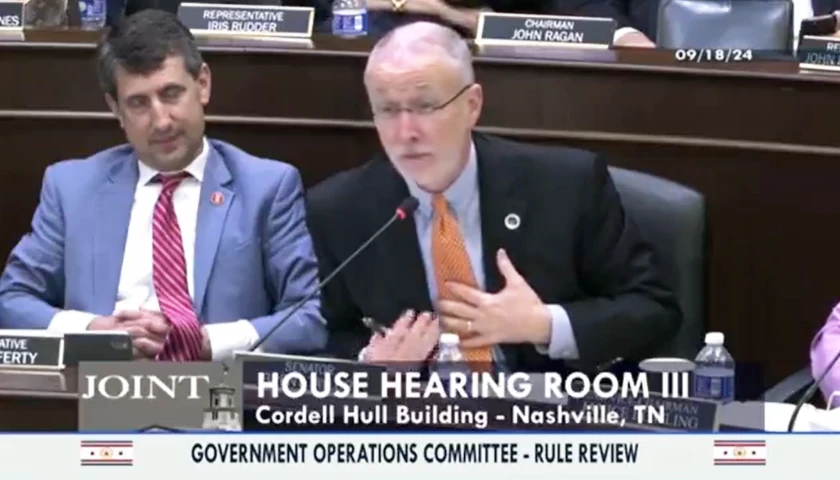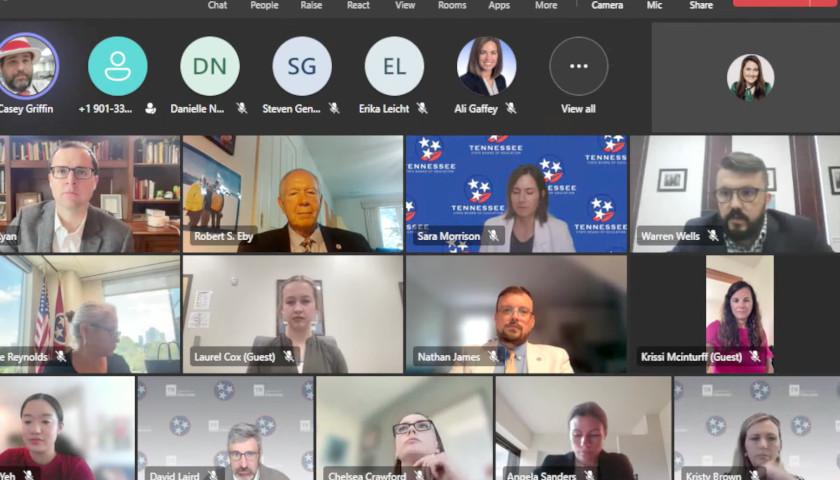By Fielding Rolston
When students step into their classrooms, they are there to learn and prepare for their future. Our teachers serve to advance each student’s education and guide them towards success.
Educators have an additional responsibility: maintaining the trust and respect of their students and their communities by conducting themselves professionally and responsibly. The vast majority of our teachers are upstanding professionals, but when a teacher violates this trust, their professional license in Tennessee may be suspended or revoked.
Though a small agency in the state government, the State Board of Education develops the rules and policies for K-12 education in Tennessee, and serves a crucial role through the thorough examination of licensure discipline cases.
By holding our state’s educators to the highest standards, we can ensure the safety of our children and preserve the professional integrity of the teaching profession.
For the last twenty-two years, I have served on Tennessee’s State Board of Education and for twelve of those years, I was the Board’s chairman.
During this time, I have seen hundreds of educator licensure discipline cases, and most were not severe. However, we have seen teachers abuse their roles, exhibiting inappropriate and sometimes criminal behavior towards students.
The State Board has the sole authority – and the responsibility – of governing the qualifications, requirements and standards of licenses for all public school educators and administrators.
But in 2015, the State Board’s ability to perform licensure actions was challenged when the Davidson County Chancery Court issued a ruling that limited the Board’s ability to deny license reinstatement for a teacher who had pled guilty of statutory rape of one of his students and whose conviction was later expunged.
The court believed the Board’s rule was not clear enough and invalidated the board’s use of “other good cause” except for in certain limited circumstances. This created a dangerous precedent and loophole which threatened the safety and wellbeing of our students as well as the integrity of the teaching profession in Tennessee. We set out to immediately address this loophole by issuing an emergency rule to repeal and replace the old rule with one that clearly defines the discipline schedule for the formal reprimand, suspension, and revocation of educator licenses.
This way, both the State Board and those holding educator licenses will have a clear understanding and expectation of the discipline imposed for professional misconduct.
The new emergency rule that is currently in effect adds clarity to the expectations of educators in Tennessee while protecting our students and the integrity of the teaching profession, but it is not permanent and will expire on March 4, 2018.
State legislators have an opportunity to approve a permanent version of the rule with changes and refinements brought by educator organizations. The new rule set to take effect on March 5th, will help to protect the teaching profession’s reputation and the safety of all students.
Our children come to classrooms to learn, not to be preyed on or mistreated by their authority figures. When we hold our excellent educators to the highest professional standards, our students can focus on what should be their priority: learning.
As I retire from the State Board later this year, I am certain the permanent educator licensure discipline rule will better protect our students and everyone in the teaching profession.
I hope that all of the members of the Tennessee General Assembly will join our legislature’s education leaders in voting to make the new rule permanent—ensuring the safety of our children and protecting the education profession in Tennessee.
– – –
Fielding Rolston is the Chairman Emeritus of the State Board of Education






This is a huge issue that we need to address. We have worked hard to keep children safe and protect the teaching profession by keeping pedophiles out of the classroom. Please contact your legislator and let them know your opinion.